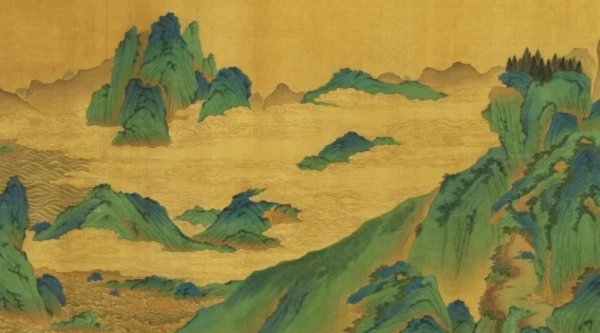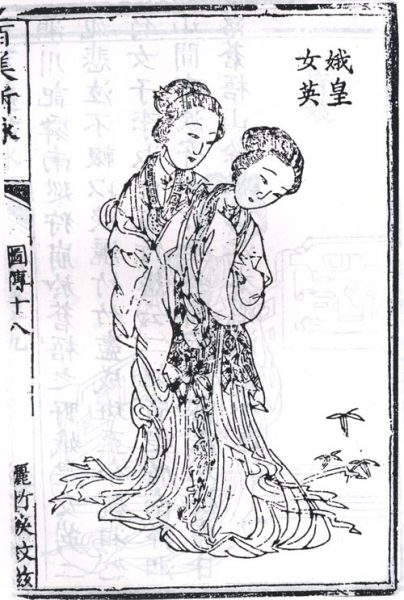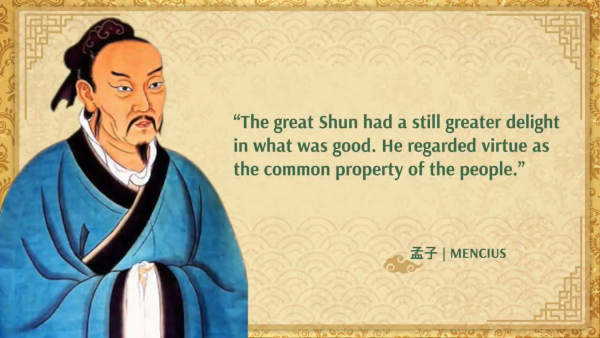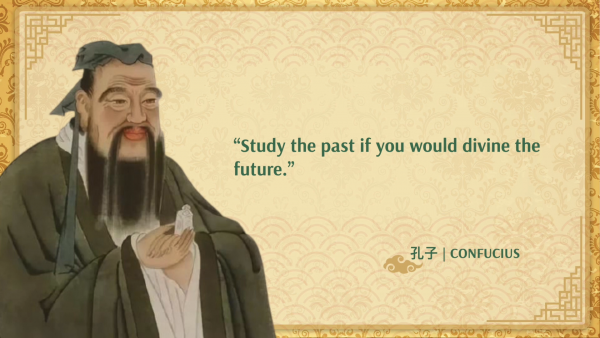Welcome to Tea with Erping.
Have you heard of Qin Shi Huang, the emperor who united China? How about Kublai Khan, the mighty Mongolian warrior who invaded China and established the Yuan Dynasty? Or perhaps the Qing emperor Kang Xi, the great patron of the arts?
Each of these powerful men advanced Chinese civilization in a different period of history, and each came from a ruling family of noble clans, as per China’s dynastic tradition which lasted for thousands of years until the early 20th century.
The great emperor I want to introduce today is a man who lived many centuries earlier, between 2334 and 2234 B.C. He was born with the name Shun (舜). Shun would become known as one of China’s five legendary sage kings. The great historian, Sima Qian, wrote about him in Shiji, or Records of the Grand Historian, so his story is one that future Chinese emperors, like Qin Shi Huang of the Qin Dynasty, Kublai Khan of the Yuan Dynasty, and Kangxi of the Qing Dynasty would all have known.
But Shun began life as a poor peasant. How did this very ordinary person come to rule all of China?
As a child, Shun lived on a farm with his father, stepmother, and half-brother. In fact, his whole family couldn’t stand their eldest son. They even tried to kill him unsuccessfully on multiple occasions. But despite his abusive family, Shun never stopped being filial to both his parents and was always caring towards his younger half-brother. He would happily do anything they asked of him. It was said that the family couldn’t kill Shun when they wanted to, yet when they needed him, he was always around.
Success
You are now signed up for our newsletter
Success
Check your email to complete sign up
Shun was an extraordinary person even from a young age. When he was 17, he was driven out of the house and became homeless, so he made a living as a laborer. In fact, wherever he traveled, he proved diligent and resourceful. People liked and respected him. Shun first became an apprentice in a village by the Yellow River that produced pottery. Within a year, he helped improve the standard of pottery for the whole village, and won the admiration of his competitors. The village grew into a thriving city within a few years.

Shun then traveled to a mountain village to farm. Other farms wanted to offer him land. He decided to share the land with others so the whole community could grow crops. At lake Zhe, Shun became a skilled fisher and he quickly learned where the best fishing parts of the river were. But he would always leave those to others, and never took the best spot for himself.
After Shun joined them, the intense infighting among the fishermen stopped. Miles away, in the capital Pingyang, which would become modern-day Shanxi Province, Emperor Yao, a wise and benevolent ruler, was looking for a successor. He had nine sons, but realized that none of them had the virtue to inherit his throne. So he sent out his ministers to find a worthy candidate who had what it would take to become the next ruler.
Yao’s ministers recommended Shun. After Shun was brought to court, Emperor Yao decided to test him. He let Shun marry his two daughters. Along with a house and dowry, he gave him a district to govern.
This may sound strange today, but polygamy was normal practice at that time. At 30 years old, you might think Shun had hit the jackpot, but instead of riding off into the sunset to live the good life, he continued to work in the field every day and even convinced the two princesses to join him in living a humble life in the countryside.

Shun’s own family saw his success and became enraged. His half-brother lured him into a barn and tried to burn him alive. On another occasion, Shun’s stepmother asked him to dig a new well for the family, and tried to use it as a trap to bury him alive. But Shun survived, and yet never tried to blame or punish them. Not surprisingly, among the 24 most celebrated Chinese in terms of filial piety, Shun ranks number one.
Towards the end of Emperor Yao’s reign, Sun assumed the role of acting emperor at 50 years old. After three years, he quietly left for home so that Danzhu, Emperor Yao’s son, could govern the country.
But the public demanded Shun to continue taking care of the state affairs. So at 61, he officially became emperor, and arranged compassionately for 39 years.
Do you know why I find the story so interesting? Some ancient rulers in the West also began their lives as peasants. there was Diocletian of Rome, who rose through the ranks of the military and Basil I, the Byzantine emperor who took power through a violent coup.
But Shun’s story is different. It makes me wonder, what makes a good emperor? Shun’s life shows us the five fundamental relationships in Confucian philosophy: those between ruler and subject, father and son, elder brother and younger brother, husband and wife, friend and friend.
The Chinese philosopher Mencius said: “The great Shun had a still greater delight in what was good. He regarded virtue as the common property of the people.”

In imperial China, people believed the right to rule was granted by Heaven, and that Heaven selected the ruler for his virtue. Mencius commented on Shun’s reign:
“The sovereign can present a man to Heaven, but he cannot make Heaven give that man the throne. Yao presented Shun to Heaven, and Heaven accepted him. He presented him to the people, and the people accepted him. Therefore, I say heaven doesn’t speak. It simply indicated its will by his personal conduct and the conduct of affairs.”
Sima Qian wrote in Records of the Grand Historian that “civilization and kindness in the world started with Shun.”
Before Shun’s death, instead of having his own children take over the seat of power, he passed his throne to Yu, who was famed for controlling the notorious floods of the Yellow River. He later founded the Xia Dynasty.
Shun was a great man and a great emperor, but actually he wasn’t the only Chinese emperor who came from a humble background. There was also Liu Bang, who founded the Han Dynasty, and Zhu Yuanzhang, who founded the Ming Dynasty — both through armed rebellion against the previous dynasties. But neither of them matched Shun in terms of virtue or filial piety.
At the end of the day, Shun is known for his rule of virtue. In the words of Confucius, Shun was a sage of virtue, and thereby an esteemed Son of Heaven. For centuries, the rule of virtue that started with Shun was a timeless golden standard for all emperors and rulers in China, until 1949 when the foreign communist ideology took over the Middle Kingdom.
Historians know that some 80 million innocent lives were lost under the past 70 years of communist rule — more than the victims from both World War I and World War II put together. According to Freedom House, an independent human rights NGO, China ranks among the worst most closed societies in its 2021 “Freedom in the World” report.
In this digital age Chinese people sadly don’t have access to international media outlets and social media platforms. In Western media, we have learned about horrific abuses such as the genocide in Xinjiang, forced organ harvesting from Falun Gong practitioners, demolitions of Christian churches, imprisonment of human rights lawyers, and outspoken reporters.

As Confucius said, “Study the past if you would divine the future.” Many Chinese hope that the time for returning to the rule of virtue and to our cultural heritage is long overdue.
It’s widely believed that the open society in Taiwan where traditional culture flourished along with a vibrant democracy should be a successful model for mainland China. Speaking of Taiwan, it’s time for tea break and now I’m going to enjoy my high mountain tea from the treasured island.
Until next time, peace and tea be with you.














